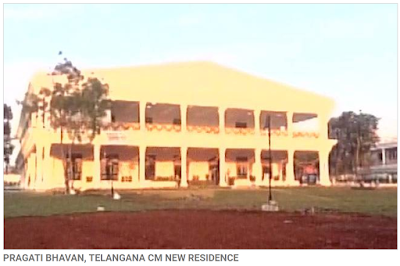In an interview in early January, when asked if the BJP could challenge and replace the CPM in Tripura, the state’s longest serving chief minister, Manik Sarkar, laughed. “Challenge? Replace? You go and ask the people. And you will know the answer.” On March 3, 2018, the people of Tripura answered, bringing to an end 25 years of uninterrupted CPM rule in the state and the 20-year-old reign of Sarkar.
Government employees were unhappy because they were still on fourth pay commission salaries. The BJP promised them a hike, committing to implement the Seventh Pay Commission and that worked overwhelmingly in the BJP’s favour. Young students were unhappy because they felt Tripura was missing out on modernity and jobs or because they felt the CPM cadre were getting all the jobs that were available. The BJP presented itself an alternative which would bring vikas (development).
"Chief Minister Manik Sarkar can’t use use a smart phone. He refused to meet CEOs of top IT companies that we mobilised during the 2015 Tripura conclave just before Agartala became India's third gateway", says Saumen Sarkar, Vice President, Bank of America (IT solutions), who hails from Tripura. Sarkar organised the one-day brainstorming session, that is, the Tripura Conclave, and his efforts to mobilise several top IT majors went to waste when the state government did not play ball.
Sarkar’s biggest asset was his clean image and projection of austerity which didn't help in this elections. For Sarkar it has been a cruel good-bye, for the state has shifted to his most bitter ideological rival.
It would be preposterous to treat the results in the recent assembly elections in the three North Eastern states—Nagaland, Meghalaya and Tripura—as a barometer for the Lok Sabha elections 2019 in these states. In Nagaland (12 seats) and Meghalaya (2 seats), the BJP can only hope to be an ally of the winners. Before the results were declared on March 3, 2018, it would have been difficult for many to believe that the BJP would win 12 seats in the staunchly Christian Nagaland.
- In Tripura BJP won 35 seats, BJP's ally IPFT won 8 seats and CPM 16 seats. Congress lost in all seats.
- Nearly 44 candidates in the BJP list in Tripura were ex-Congressmen.
- The saffron party inflicted a humiliating defeat on the Left Front which had never faced such a situation even when it had lost power in 1988.
- The fact that the BJP has got a majority on its own means it would not concede to its ally IPFT’s demand for a separate state ‘Twipraland’.
- The 2019 result will therefore depend on how secure the uneasy partnership between the BJP and the Indigenous People’s Front Tripura remains.
- Poor farmers live in fear of the revival of a tribal insurgency and credit CM Manik Sarkar for tackling it in the last decade.
- The BJP’s clean sweep in Agartala also proves that middle-class Bengalis, fed up with the lack of job creation by previous governments, also voted decisively against the Left.
- The BJP has its eye firmly on the 25 Lok Sabha seats from the north-eastern States and that its ambitions are grounded.
- Manik Sarkar was fighting a grossly unequal fight. On one side was the CM standing alone with no money backing him, and on the other side was the “world’s largest” party the BJP, with plenty of money power and which is ruling the Centre. When CPM is refusing to have an electoral understanding with the Congress, how can it win against the BJP?
- BJP deployed 52 union ministers in Tripura during the campaign. The aim was to boost confidence of the cadre who were up against arch rivals, Left.
- The role of the RSS is important in this victory. Some senior workers were sent to BJP to work in Tripura since two years. Sunil Deodhar was the incharge of BJP in Tripura. The amounts of money spent by BJP is mind boggling too.
- The Congress’ vote share dropped from 36.5% in 2013 to 1.8% now. The BJP’s vote share rose from 1.5% to 43.0%. CPM vote share dwindled from 48% to 42.7% votes. The sheen of the BJP's spectacular win was at the cost of Congress rather than the Left. The BJP managed to swallow up the entire opposition space rather than making any drastic inroads into the traditional Left vote base.
Unless different parties with varied ideologies chalk out a common programme, they can't seriously and effectively challenge the BJP.




